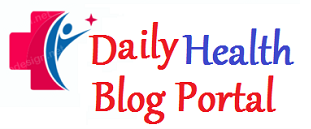Getting the right treatment can feel like a breakthrough for people struggling with depression, but it’s not always easy to know which form of therapy is right for you. There are many options available, and it can feel overwhelming when you are struggling with the symptoms of depression while simultaneously trying to identify and discover the most suitable treatment.
If you’re looking for depression treatment in Clearwater, here are some of the options available that could be the right fit for you.
Talking Therapies
Different forms of talking therapies are often used and recommended when treating depression. Many people find it helpful and cathartic to talk about their problems and get stressful thoughts off their chest, even if it’s only temporary. Having somebody to speak to regularly about your problems can give you a sense of support that is difficult to find elsewhere. Cognitive behavioral therapy, also known as CBT, is a common type of talking therapy and depression treatment. It enables people suffering from depression to work with a qualified therapist who can help them to navigate their thoughts and feelings. Other forms of talking therapies include support groups where people experiencing similar symptoms can get together and find peer-to-peer support and friendships.
Transcranial Magnetic Stimulation (TMS)
This form of depression treatment targets specific areas of the brain in an effort to reduce the symptoms associated with depression. Transcranial magnetic stimulation, known as TMS, is a relatively new treatment and became widely available in the US in 2008. It may be beneficial for people who are not experiencing positive or effective responses to medication, for example. During this treatment, nerve cells in the brain are stimulated by magnetic currents, which can help to reduce the symptoms of depression. It’s important that you check with a qualified specialist to make sure you are suitable for this form of depression treatment. For example, people with certain conditions, such as bipolar disorder or a higher risk of epilepsy, might not be suitable candidates for TMS treatment.
Medication
In some instances, people may seek medication from their doctor to help deal with the symptoms of depression. However, this should be seen as a last resort when you have tried other forms of therapies for depression. Some people may also find that they need to combine other therapies alongside medication to get the best results. In the first instance, speak to your doctor and other health professionals to get tailored advice and decide whether this could be the right treatment for you. Always take medication as instructed and monitor any unwanted side effects. If one form of medication doesn’t work, it doesn’t mean nothing will. There are multiple types of medication for depression that your doctor will be able to advise you about.
Self-Help
You might want to try and explore self-help strategies before seeking further depression treatment. There are various things to consider when trying to manage the symptoms of depression. Popular self-help treatments include regular exercise, changing your diet to consume more foods that could help to combat the symptoms of depression, and undergoing a social media detox. If you feel better after going outside for a walk, consider making this a regular part of your routine. If you notice that spending time on social media makes you feel down, consider unfollowing certain accounts and spending less time scrolling through your feed.
Identifying the Right Type of Depression Treatment For You
Everybody is different, and you might be experiencing a different set of symptoms from another person suffering from depression. Whether you’re interested in exploring a TMS treatment or you want to get some professional guidance before going further, you can work with specialists like TMS Advantage Clearwater.
